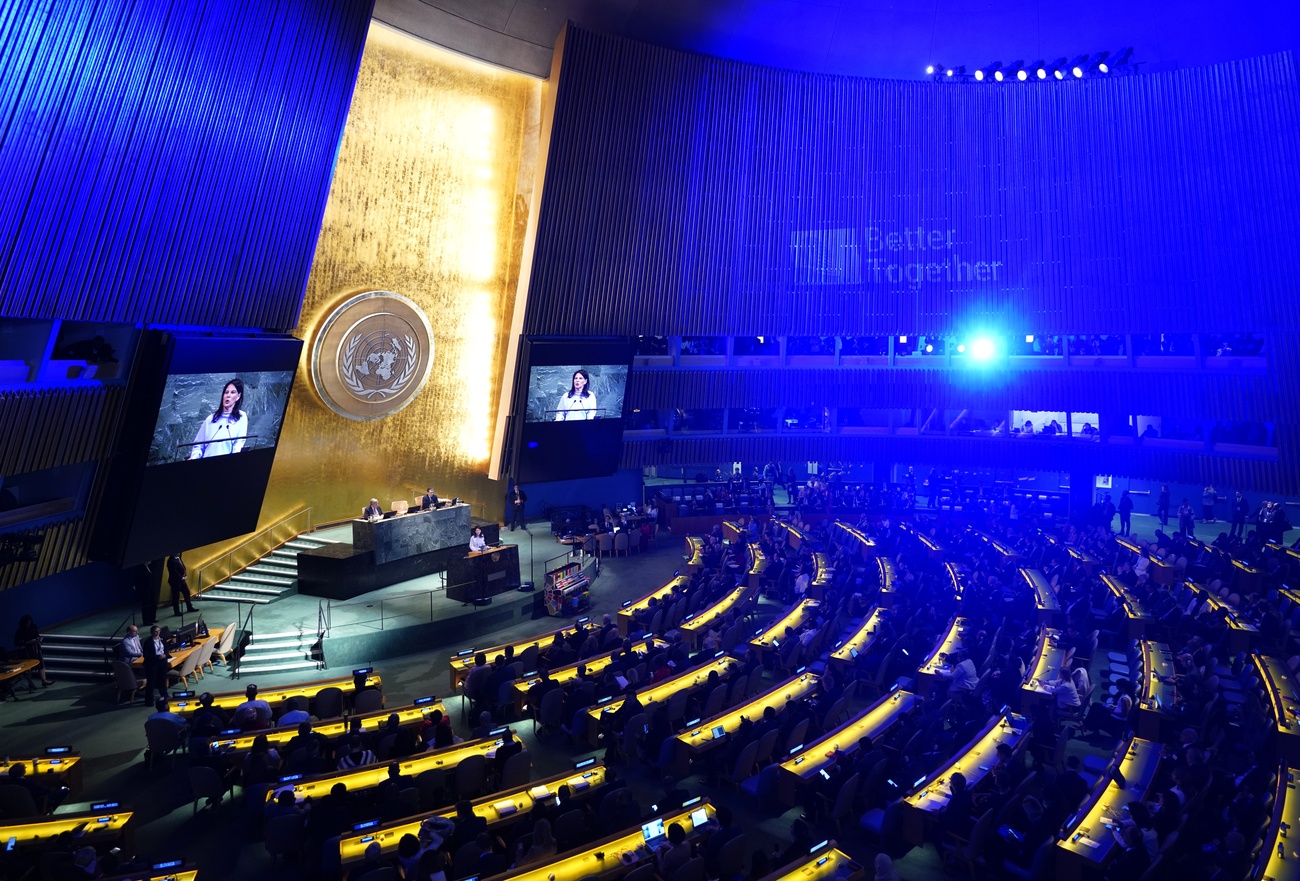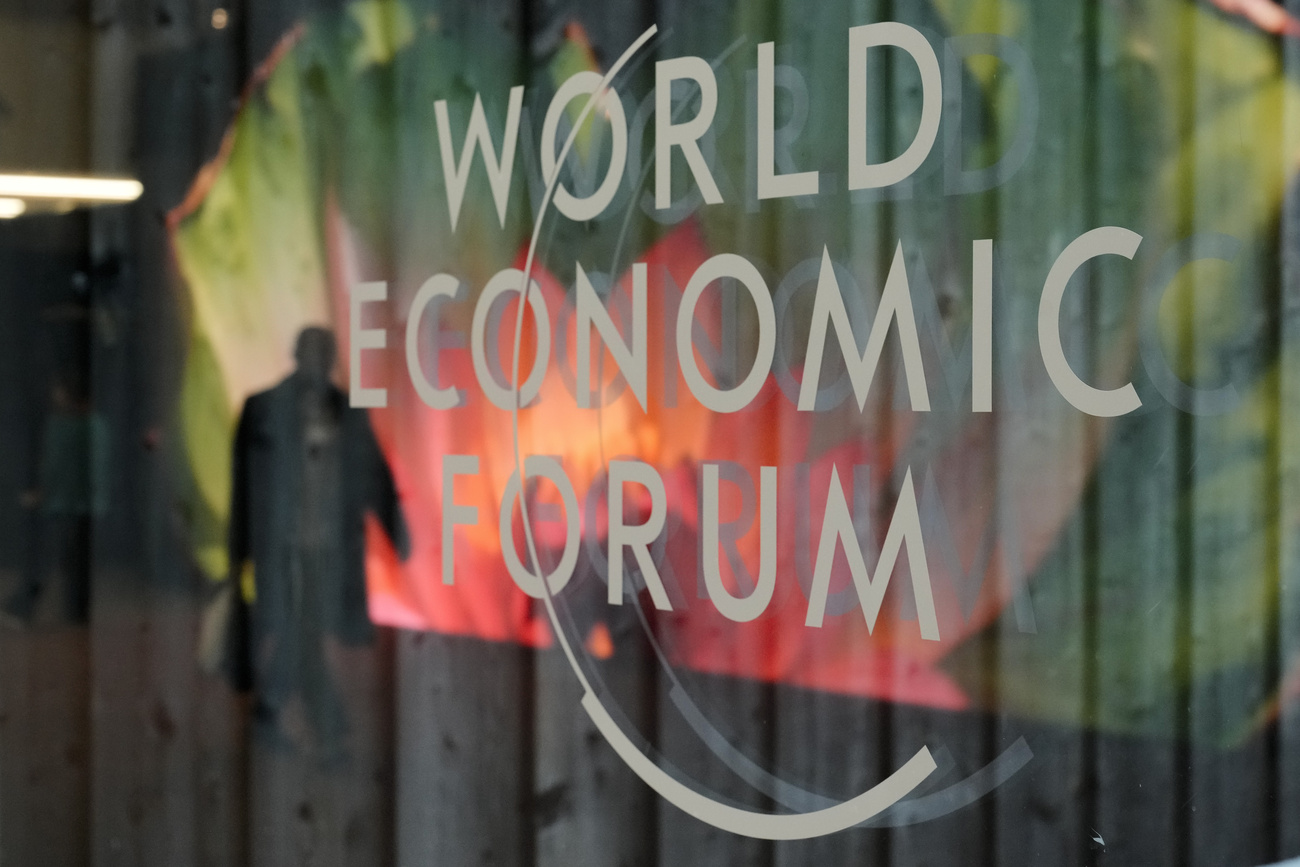
Short film longs for Oscar glory

Reto Caffi, director of the "impossible love story" Auf der Strecke (On the Line), will learn on Sunday whether he has won the first Swiss Oscar in 18 years.
Caffi, 37, talks to swissinfo about moral grey areas, casting violent teenagers and what makes a successful film.
On the Line, Caffi’s 30-minute graduation film, was made for about SFr100,000 [$85,000] with an 11-day shoot and is one of five films in the running for the Best Short Film Oscar – for live action as opposed to animation.
Switzerland’s previous Oscar nomination was for Christian Frei’s 2002 documentary War Photographer, which lost to Murder on a Sunday Morning. The most recent Swiss actor or director to actually wave around the statuette was Xavier Koller for his immigrant drama Journey of Hope, named Best Foreign Language Film in 1991.
Caffi is looking forward to his trip to Los Angeles – “business and pleasure” – and will attend a screening organised by the Swiss consulate and another by the Academy.
swissinfo: Congratulations on your nomination. Be honest – were you surprised?
Reto Caffi: Surprised is the wrong word – I was sort of hoping as I knew I was on the short list so it was 50-50. But I was extremely happy!
swissinfo: What is On the Line about?
R.C.: On the Line is basically about a good man who makes a bad decision. It’s the story of a department store detective who’s secretly in love with a sales assistant in the same building. He secretly observes her via his monitoring system and follows her onto the train at night when he goes home. One day he sees her with another man and later witnesses this other man getting into trouble with some kids – and he decides not to help his apparent rival. This turns out really badly: the guy dies and he finds out that this man is not who he thought he was.
The film is basically about his guilt and how he can’t be close to this woman because if he told her the truth he would lose her, and if he doesn’t tell her the truth he can’t deal with his bad conscience. It’s a guilt-ridden impossible love story.
swissinfo: How did you get the idea for the film?
R.C.: I wrote it with a friend and we thought it would be interesting to have a guy who could not be with the woman he loves because of guilt. We liked this classical Greek tragic concept of being so close and yet so far.
We then asked ourselves what he could have done to make this issue of guilt more interesting. For example we didn’t want him to accidentally run over her boyfriend and drive off – something where he would clearly feel very guilty. We were looking for something in a grey area where viewers would ask themselves “what would I have done?”
So we came up with the whole youth violence and public violence issue and the question of civil courage – you can address viewers directly and they will be immediately drawn into the story.
swissinfo: On the Line has won more than 50 awards around the world – why do you think it has been so successful?
R.C.: First of all the love story is very classical – people are easily drawn towards love stories – and at the same time there’s this event that is very close to our daily experience: every day you read something about fights in public spaces. And then there’s the whole issue of video cameras and monitoring. It’s a timeless story wrapped in a very topical coat, so to speak.
swissinfo: Is it a very Swiss film?
R.C.: It’s a Swiss film in the sense that it was shot in Switzerland [in Bern] with Swiss actors and I’m a Swiss director. But I think the story is very universal.
swissinfo: On the Line is your graduation film from the Academy of Media Arts in Cologne. Why did you go to Germany? Is Switzerland not a good place for young film directors?
R.C.: I wanted to get into films and this school offered a two-year postgraduate programme. For me, in my thirties, getting student status made funding for short films much easier. You can spend SFr100,000 of your own money on one short film or you can spend the same amount on two years’ education and two more films – I took the school deal.
swissinfo: Was it an easy shoot?
R.C.: It was a very easy shoot – everything was pretty well prepared. We had money and I had good actors, so it was actually very smooth.
The biggest problem was finding the kids for the subway fight. The 50 or 60 young actors I auditioned were all nice middle-class boys and this simply wasn’t believable. So I ended up looking for people in a psychotherapeutic programme in Basel which treated violent children. I found one of the kids in the movie there and it wasn’t a problem shooting with him at all – he just added some authenticity to this scene. He now wants to be a stuntman!
swissinfo: What does an Oscar nomination mean?
R.C.: Moneywise nothing! But PR-wise it’s huge. I mean the film had a lot of exposure before, but this is another level. It’s just a very big honour, and I think for the whole crew it’s so thrilling that a tiny student film can make this dream career right up to the Oscars. That’s very encouraging and also other young filmmakers see it’s possible.
swissinfo: You’ll be in Los Angeles for the ceremony. Could you imagine working in Hollywood?
R.C.: I tend towards Europe to be honest – I find England a really interesting filmmaking country – but if I were offered a really good script from the United States, I’d probably take it. Actually it all depends on the script, and hopefully now I’ll start receiving more of them. I rely on my own ideas but if something comes along, you have to be open to it.
swissinfo: What are your chances of winning?
R.C.: I haven’t seen any of the other films so I can’t really say. But I’m a bit scared of the other German-language film [Toyland]. The Second World War and the subject of Jewish deportation always tend to have a great impact on Academy members.
[Postscript: Toyland did indeed win]
Short film (live action) Oscar nominations:
On the Line (Reto Caffi/Switzerland)
Manon on the Asphalt (Elizabeth Marre and Olivier Pont/France)
New Boy (Steph Green and Tamara Anghie/Ireland)
The Pig (Tivi Magnusson and Dorte Høgh/Denmark)
Toyland (Jochen Alexander Freydank/Germany)
Reto Caffi was born in 1971 and grew up in Bern. He studied English and journalism in Bern and Fribourg.
He worked for Swiss Radio International – swissinfo’s previous incarnation – as well as for various print media and Swiss Television.
Between 2004 and 2007 he studied at the KHM (Academy of Media Arts in Cologne).
In 2008 his graduation film, “Auf der Strecke”, won the Swiss Film Prize for Best Short Film.
Caffi told swissinfo he is a fan of Martin Scorsese, the Dardenne brothers – “they tackle very ethical questions in a non-sentimental way” – Krzysztof Kieślowski, Alexander Payne, Ken Loach and Mike Leigh, “but there are so many great directors!”
Filmography: 1995 Quickie; 1996 Leos Freunde (both as co-director); 2000 Bus-Stop 99 (all short films); 2003 Moehsnang (documentary); 2005 Männer am Meer; 2007 Auf der Strecke (both short films).

In compliance with the JTI standards
More: SWI swissinfo.ch certified by the Journalism Trust Initiative




























You can find an overview of ongoing debates with our journalists here . Please join us!
If you want to start a conversation about a topic raised in this article or want to report factual errors, email us at english@swissinfo.ch.